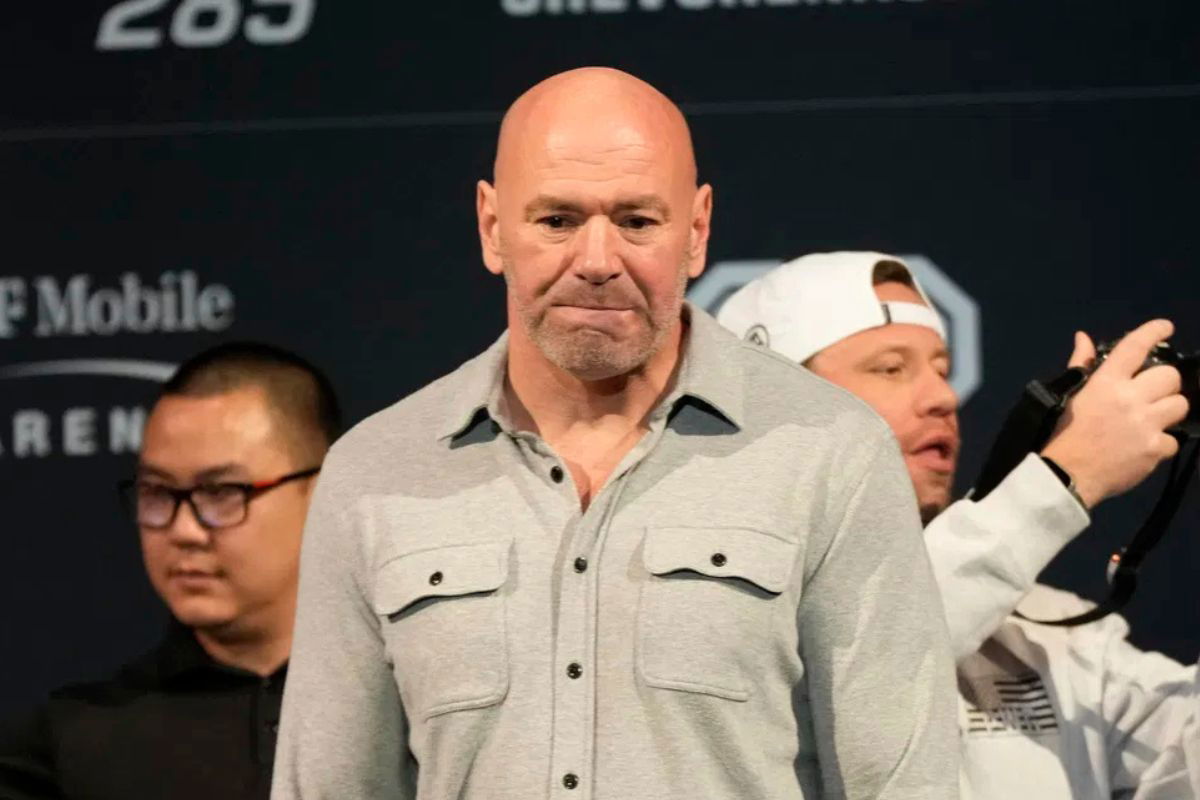
Imago
Credits: IMAGO

Imago
Credits: IMAGO
The saga of Dana White and UFC’s parent company TKO’s proposed amendments to the Muhammad Ali Act entered a new phase a few days ago. Reports claimed PBC’s Tom Brown had seemingly extended his endorsement. Titled the Muhammad Ali American Boxing Revival Act, the proposal, introduced to Congress on July 23, has caused quite a stir across the combat sports world.
Watch What’s Trending Now!
A fresh development emerged when one of the lawyers deeply involved with the Professional Boxer Health and Safety Act and the Muhammad Ali Act approached Congress to challenge the Revival Act. The proposal introduces a few new features aligned with its stated purposes. However, the suggestion of unified boxing organizations (UBOs) appears to have raised eyebrows within the boxing community.
ADVERTISEMENT
Dana White-TKO’s revival act faces fresh scrutiny
Eminent combat sports lawyer Erik Magraken shared Pat English’s letter via a tweet. The letter outlines Mr. English’s concerns that the proposed amendments undermine the original intent of the law.
“The Act was intended to create, among other things, a firewall between ratings organizations and Promoters. The proposed amendment destroys that firewall as to a selected entity, which will be awarding in-house championships based upon ratings, which excludes boxers not affiliated with that entity,” he wrote, adding, “This is a betrayal of the current act and of what McCain and those who worked with him were trying to accomplish.”
Top Stories
Miami PD and U.S. Marshals Launch Manhunt for Gervonta Davis After Arrest Warrant Issued

“Rest in Peace, My Champ”: Evander Holyfield Joins Boxing World in Mourning Sugar Ray Leonard’s Personal Loss

Jake Paul Trolled After Private Jet Dig at Floyd Mayweather Resurfaces: “This Is Why AJ Broke His Jaw”

Diddy’s Last-Ditch Donald Trump Pardon Plea Takes Unexpected Mike Tyson Turn

“If That Was My Son…”: John Fury Cautions Anthony Joshua in Emotional Plea After Car Crash

Among other issues, the proposal exempts promotions like Dana White‘s Zuffa. TKO’s new boxing venture may potentially circumvent rules preventing promoters from locking fighters into restrictive or exploitative contracts. These entities may also be exempt from disclosing financial details and deal terms to both athletic commissions and fighters.
ADVERTISEMENT
Lawyer Pat English keeps fighting the good fight denouncing the Ali Destruction Act
– @MMAFA pic.twitter.com/ZGtoSesDZL
— Erik Magraken (@erikmagraken) October 12, 2025
Clear, written criteria or explanations for fighter rankings or title decisions could become casualties of the amendment. “Under the proposed Amendment the idea is for a Zuffa Controlled entity to operate as both a promoter AND a sanctioning body; they should be subject to the requirements for both as set forth in the Ali Act,” it read.
ADVERTISEMENT
The amendment weakens or changes language protecting fighters from conflicts between managers and promoters, without any clear rationale.
UBOs: A new boxing blueprint
Beyond enforcement ambiguities, the letter also highlights concerns related to dr*g test reporting.
ADVERTISEMENT
“I do not pretend that the Ali Act or the Professional Boxer Health and Safety Act is perfect. There is room for improvement. However, the proposed Amendment is not the way to go. It lessens protections for boxers and is designed for a single purpose – to allow the new Zuffa boxing entity to avoid restrictions designed to protect boxers. This is an ignoble goal,” Mr. English wrote, additionally requesting an opportunity to testify.
Suggesting amendments to the 1996 Professional Boxing Safety Act, the new proposal states, “A unified boxing organization (in this section referred to as a ‘UBO’) shall be deemed to be in compliance with the requirements of this Act if the UBO meets the conditions of this section with respect to— ‘(1) each boxer under contract with the UBO;’ and ‘'(2) each professional boxing match organized by the UBO (in this section referred to as a ‘covered match’).”

Imago
January 14, 2023, Las Vegas, NV, LAS VEGAS, NV, United States: LAS VEGAS, NV – JANUARY 14: Dana White meets with the press following Vegas 67 at UFC Apex for UFC Fight Night – Vegas 67 – Strickland vs Imavov – Event on January 14, 2023 in Las Vegas, NV, United States. Las Vegas, NV United States – ZUMAp175 20230114_zsa_p175_023 Copyright: xLouisxGrassex
In essence, the bill allows a UBO to operate as a self-contained promotional and regulatory body. Something similar to the UFC model. Critics argue that this could allow one company to operate under a separate compliance framework. Thus potentially bypassing some protections established by the Ali Act. Theoretically, fighters could choose their promotion freely. Still, centralized control could consolidate decision-making in a single entity, which the Ali Act was designed to guard against.
ADVERTISEMENT
In light of the UFC’s $375 million antitrust lawsuit, concerns around the proposed amendment to the Ali Act have intensified in recent days.
Followers should stay tuned as further developments emerge in the coming days.
ADVERTISEMENT
What’s your take? Does the new proposal align with fighter welfare?
ADVERTISEMENT
ADVERTISEMENT
ADVERTISEMENT

